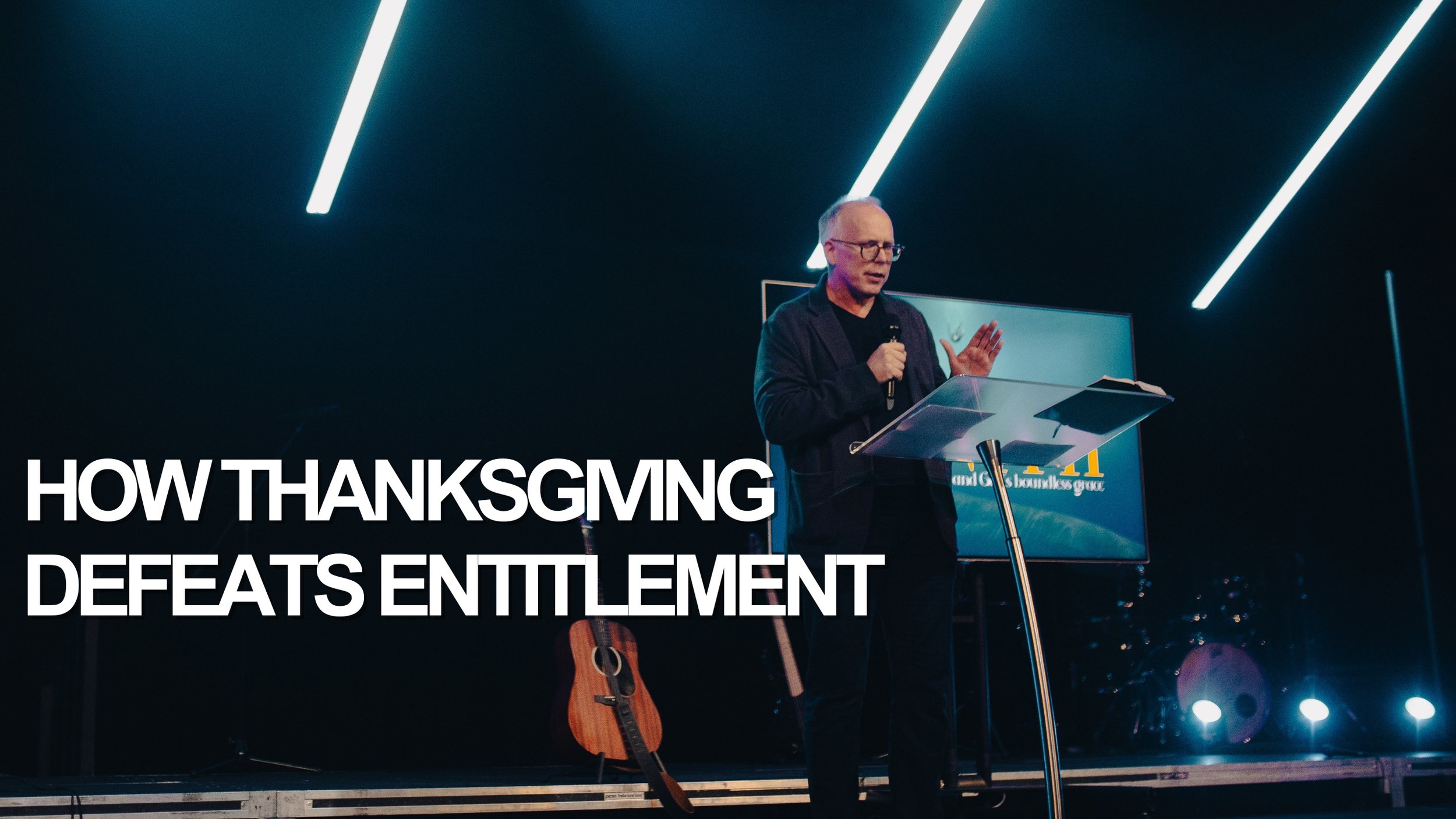How Thanksgiving Defeats Entitlement
Thanksgiving is more than a meal or a long weekend. It’s an act of spiritual warfare. In a world where comparison and resentment come easily, giving thanks re-anchors our hearts in the truth that God is still good, still gracious, and still worthy of praise.
Jonah 4 paints that picture vividly. The prophet had just witnessed an entire city repent — a national revival that would make headlines today. But instead of rejoicing, Jonah was furious. God had shown mercy to the people Jonah despised most, and he didn’t think they deserved it.
“But to Jonah this seemed very wrong, and he became angry… ‘I knew that you are a gracious and compassionate God, slow to anger and abounding in love.’” (Jonah 4:1–2)
Jonah’s problem wasn’t theological. He knew who God was. His problem was that he wanted grace for himself but justice for everyone else.
Grace Unacknowledged Becomes Entitlement
When we forget that everything good in our lives is a gift, we slip into the same posture as Jonah. Unacknowledged grace hardens into entitlement:
Grace received should lead to gratitude.
Gratitude ignored turns to entitlement — “I deserve this.”
Entitlement breeds comparison — “Why them and not me?”
Comparison slides into judgment — “They don’t deserve it.”
Judgment ends in resentment — “God, You’re not fair.”
Thanksgiving is God’s antidote to this progression. It stops the spiral by remembering that every good and perfect gift is from above (James 1:17). Gratitude resets our focus on the Giver, not the gift.
The Plant and the People
To expose Jonah’s heart, God raised up a leafy plant to shade him — then sent a worm to destroy it the next day. Jonah’s anger flared again, but God’s question pierced the truth:
“You have been concerned about this plant… But should I not have concern for the great city of Nineveh?” (Jonah 4:10–11)
Jonah grieved a plant more than people. He loved comfort more than compassion. God used the plant to mirror Jonah’s misplaced priorities — and ours.
We all have “plants” we cling to: comfort, control, finances, reputation, relationships. When any of these wither, gratitude reminds us that blessings were never rights; they were always gifts.
The Power of Thanksgiving
Thanksgiving reframes our story. It turns resentment into worship, comparison into compassion, entitlement into humility. It’s the discipline that retrains our hearts to see God rightly — as gracious, compassionate, slow to anger, and abounding in love.
So this week, before listing what’s missing, thank Him for what’s already there: the breath in your lungs, the people around you, the mercy that still meets you every morning. Because life itself — every plant, every provision, every heartbeat — is grace.
Why do you think Jonah reacted with anger instead of gratitude after God spared Nineveh?
Pastor Craig said that thanksgiving is spiritual warfare. How can gratitude guard our hearts against resentment or comparison?
What “plants” — comforts, routines, or privileges — are easiest for you to cling to? How do they affect your compassion for others?
Read James 1:17. How does remembering that every gift comes from God change the way you respond to both blessing and loss?
Think about a time when God blessed someone else in an area where you were struggling. How could practicing gratitude reshape that moment now?

